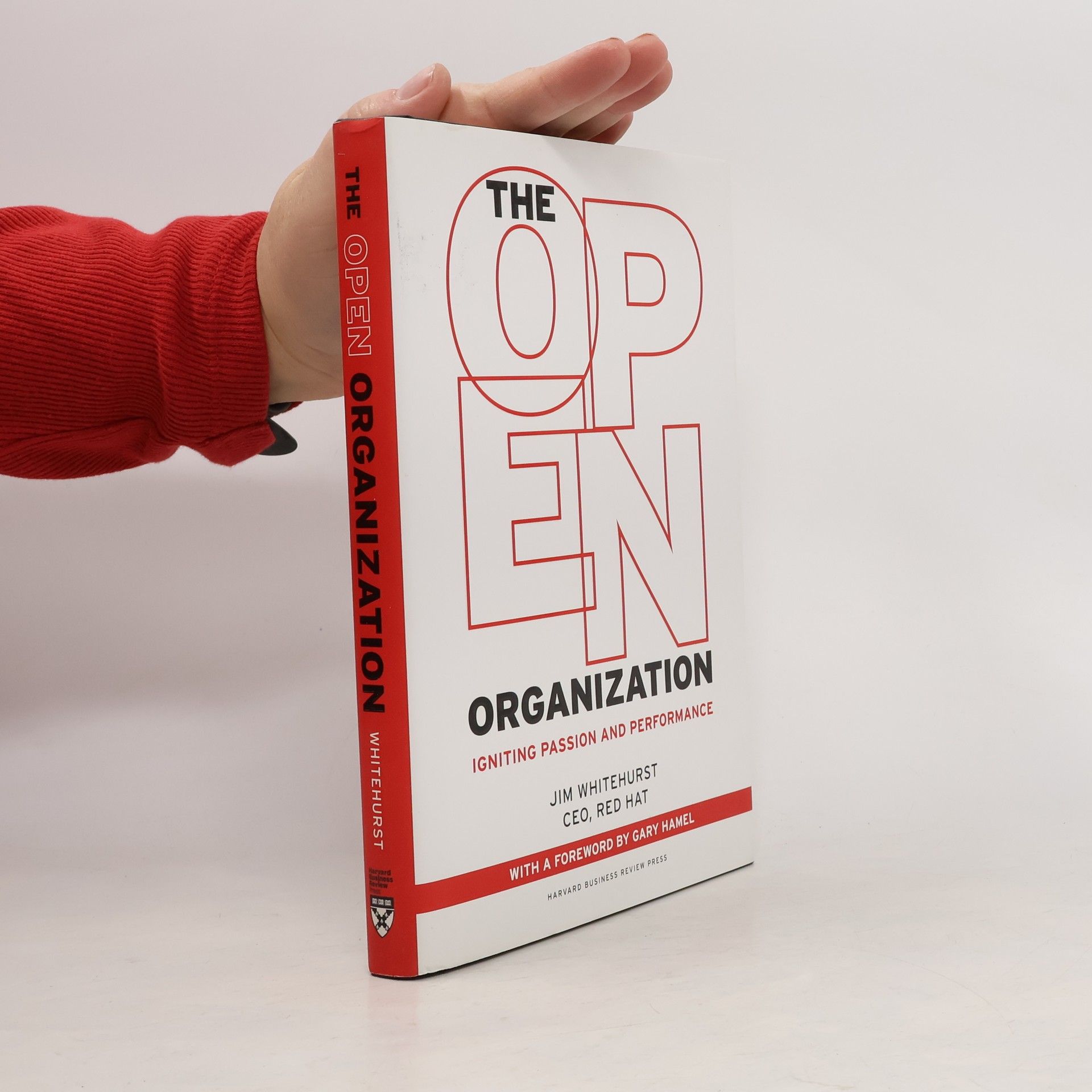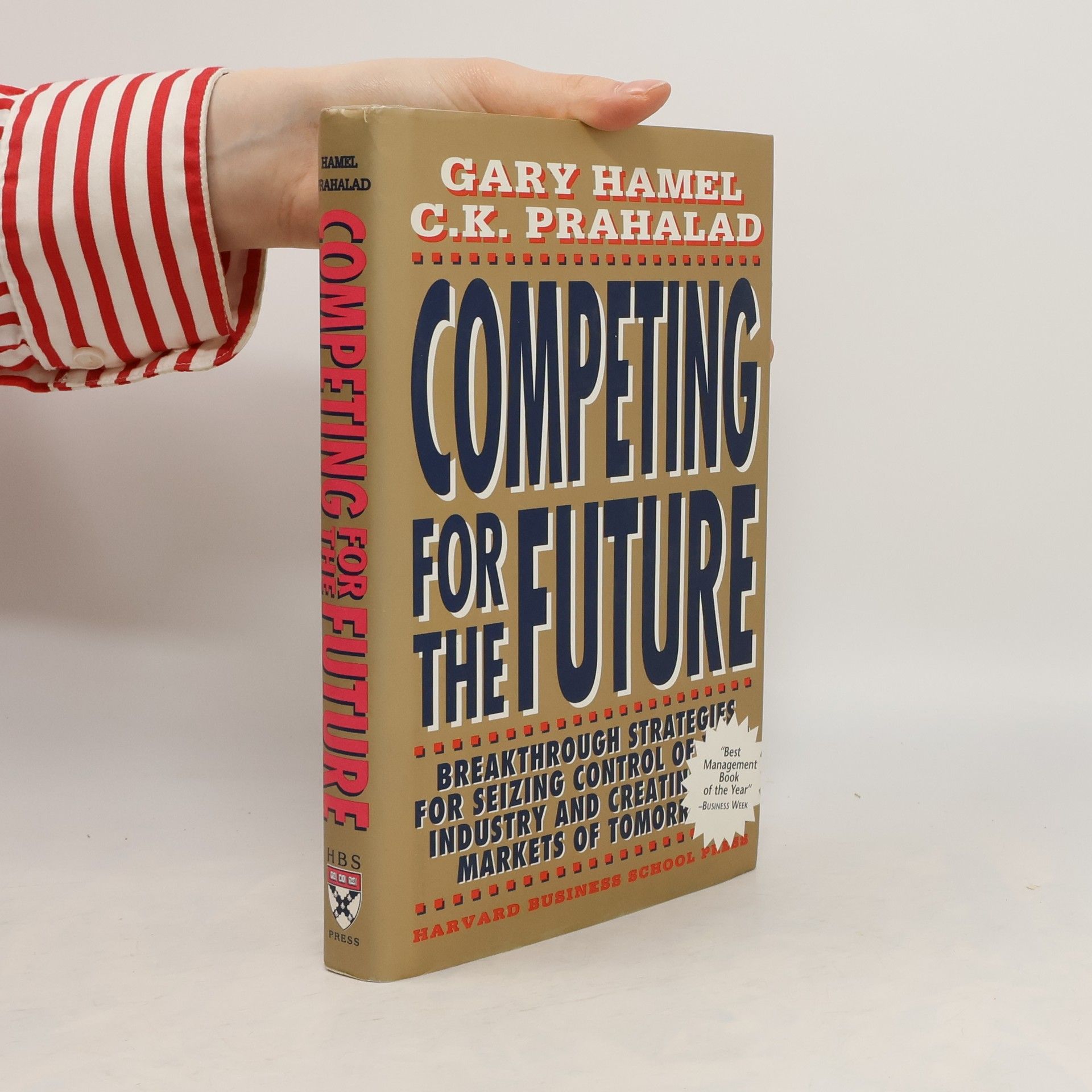A guide to business and management books, which are set in context by the authors. Those titles featured include Ansoff's Corporate Strategy, Keynes's The General Theory, Friedman's Free to Choose and Taylor's The Principles of Scientific Management.
Gary Hamel Boeken
Gary Hamel is een vooraanstaand expert op het gebied van management en strategisch denken. Zijn onderzoek duikt in de complexiteit van strategieontwikkeling, met een specifieke focus op multinationale bedrijfsomgevingen. Hij benut zijn uitgebreide ervaring uit zowel academische als consultancykringen om baanbrekende benaderingen in het zakenlandschap te onderzoeken.







What fuels long-term business success? Not operational excellence, technology breakthroughs, or new business models, but management innovation—new ways of mobilizing talent, allocating resources, and formulating strategies. Through history, management innovation has enabled companies to cross new performance thresholds and build enduring advantages.In The Future of Management , Gary Hamel argues that organizations need management innovation now more than ever. Why? The management paradigm of the last century—centered on control and efficiency—no longer suffices in a world where adaptability and creativity drive business success. To thrive in the future, companies must reinvent management.Hamel explains how to turn your company into a serial management innovator, revealing:The make-or-break challenges that will determine competitive success in an age of relentless, head-snapping change.The toxic effects of traditional management beliefs.The unconventional management practices generating breakthrough results in “modern management pioneers.”The radical principles that will need to become part of every company’s “management DNA.”The steps your company can take now to build your “management advantage.”Practical and profound, The Future of Management features examples from Google, W.L. Gore, Whole Foods, IBM, Samsung, Best Buy, and other blue-ribbon management innovators.
Challenging the belief that marketplace competitiveness is dependent on financial resources and old-world business practices, the authors provide an executive's model for today's goals
Based on open source principles of transparency, participation, and collaboration, "open management" challenges conventional business ideas about what companies are, how they run, and how they make money. This book provides the blueprint for putting it into practice in your own firm. He covers challenges that have been missing from the conversation to date, among them: how to scale engagement; how to have healthy debates that net progress; and how to attract and keep the "Social Generation" of workers. Through a mix of vibrant stories, candid lessons, and tested processes, Whitehurst shows how Red Hat has blown the traditional operating model to pieces by emerging out of a pure bottom up culture and learning how to execute it at scale. And he explains what other companies are, and need to be doing to bring this open style into all facets of the organization.
Humanocracy : creating organizations as amazing as the people inside them
- 368bladzijden
- 13 uur lezen
Organizations today are failing, characterized by sluggishness, resistance to change, and emotional detachment. In contrast, individuals are adaptable, creative, and passionate. This disconnect stems from bureaucracy—a top-down, rule-bound management structure that reduces people to mere "resources." Originating in the 19th century to standardize human behavior, bureaucracy is dehumanizing and has resulted in only 13 percent of employees globally being fully engaged in their work. The rest are physically present but lack enthusiasm, contributing to an estimated $9 trillion loss in global economic output each year. Despite trends toward flatter organizations, bureaucracy continues to expand. In this compelling work, Gary Hamel and Michele Zanini provide a blueprint for creating organizations that prioritize human potential over bureaucratic constraints. They emphasize the importance of understanding the hidden costs of "bureausclerosis," eliminating toxic bureaucratic beliefs, and learning from organizations that have successfully removed bureaucracy. Key strategies include uprooting bureaucratic structures without causing chaos, overcoming resistance to change, and fostering a culture where leadership is not tied to rank. The ultimate aim is to cultivate organizations infused with entrepreneurial spirit, where innovation thrives and everyone acts like an owner. This book is both a manifesto and a manual, filled with insights a
What Matters Now
- 283bladzijden
- 10 uur lezen
This is not a book about one thing. It's not a 250-page dissertation on leadership, teams or motivation. Instead, it's an agenda for building organizations that can flourish in a world of diminished hopes, relentless change and ferocious competition. This is not a book about doing better.
Leading the revolution
- 333bladzijden
- 12 uur lezen
This book serves as an action plan for companies and individuals aiming to become industry revolutionaries, inspiring everyone from entry-level assistants to seasoned executives who fear being unprepared for the future. The author emphasizes that in a nonlinear world, only nonlinear ideas can generate new wealth. To succeed in this revolutionary age, companies must embrace a radical innovation agenda, continually reinventing themselves and their industries, not just in crises but as an ongoing practice. Drawing from an extensive study of established companies like Enron, Charles Schwab, Cisco, Virgin, and GE Capital, the book outlines principles of radical innovation, explores the origins of revolutionary business concepts, and identifies essential design criteria for creating activist-friendly, revolution-ready organizations. It details the necessary steps for making innovation a lasting capability within a company. This work is intended for anyone willing to act on the understanding that past successes do not guarantee future outcomes. With a powerful message that sets the innovation agenda for the coming century, it serves as a rallying cry for dreamers and doers ready to lead us into a new era of transformation.
The Age of Agile: How Smart Companies Are Transforming the Way Work Gets Done
- 314bladzijden
- 11 uur lezen
Filled with examples from every business sector, The Age of Agile helps leaders of businesses both large and small learn to act entrepreneurially. It enables an enterprise to nimbly adapt and upgrade products and services to meet rapidly changing technology and customer needs.
Partnerships between companies receive a great deal of attention from top managers and researchers at the time of their formation. This attention results largely from the common perception that the initial structuring of partnerships and establishment of common goals determines partnership outcomes and success. In Alliance Advantage , Doz and Hamel shift the focus away from deal making to the internal processes within the partnership and the unfolding interactions among partners that play an important and relatively unexplored role in shaping outcomes. Focusing on the underlying reasons why companies enter alliances and the processes by which they continually learn from their interactions and re-evaluate common—and individual—goals, the authors paint a sophisticated picture of alliance dynamics over time. The authors challenge organizations to define their objectives for alliance formulation and consider whether their own corporate culture provides an "alliance ready" atmosphere.
The new capitalist manifesto : building a disruptively better business
- 221bladzijden
- 8 uur lezen
Haque maintains that the worst decade since the Great Depression is actually a crisis of institutions' ideals inherited from the industrial age. In this bold manifesto, Haque advocates a new set of ideals, and makes an irresistible business case for following the lead of companies that adopt these ideals.



